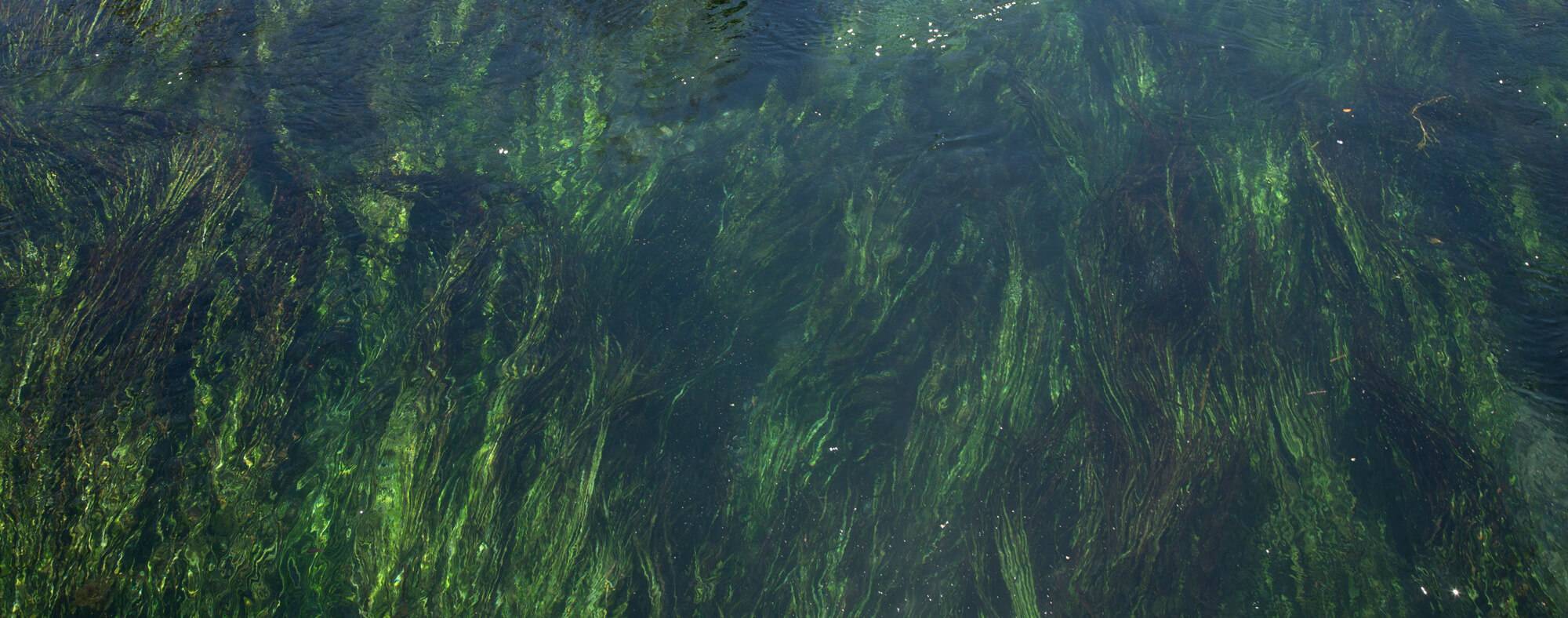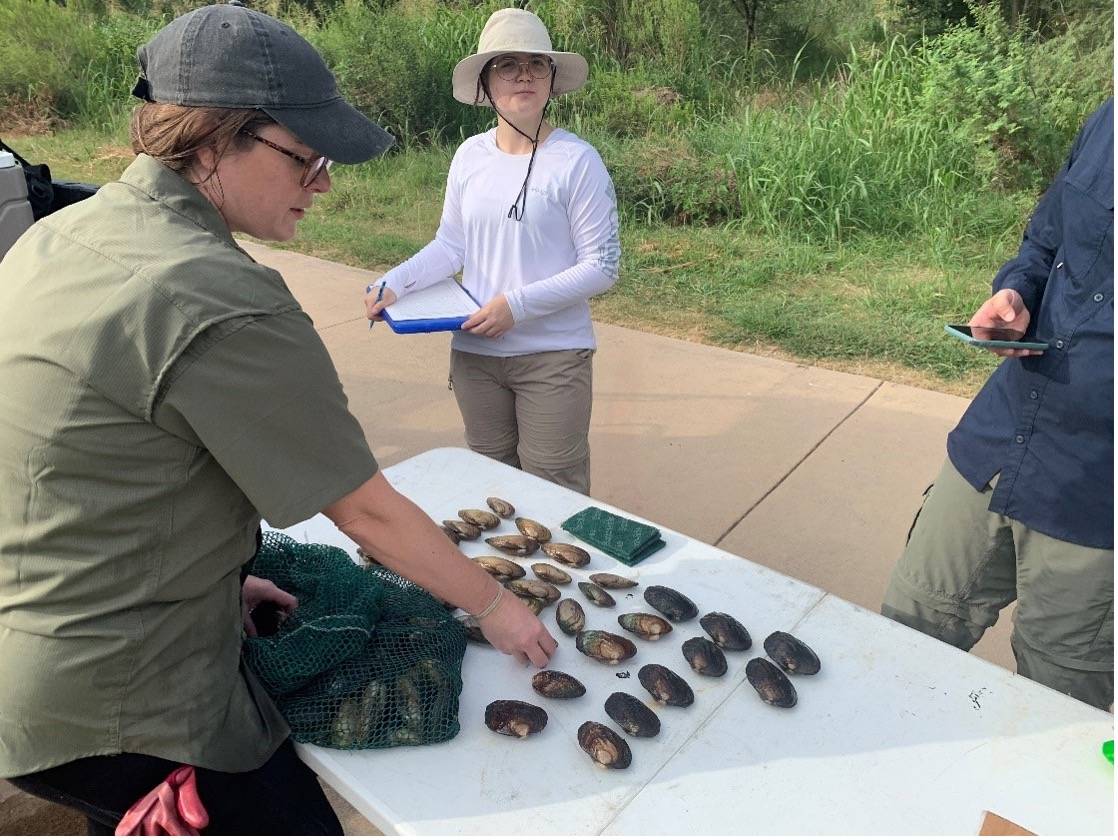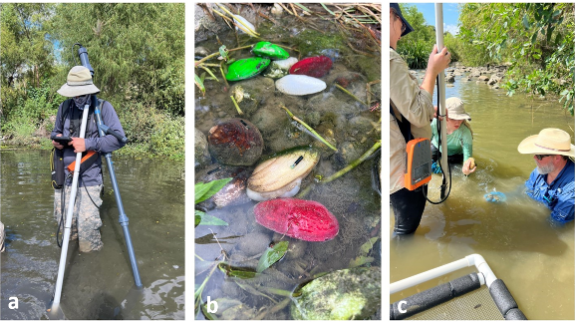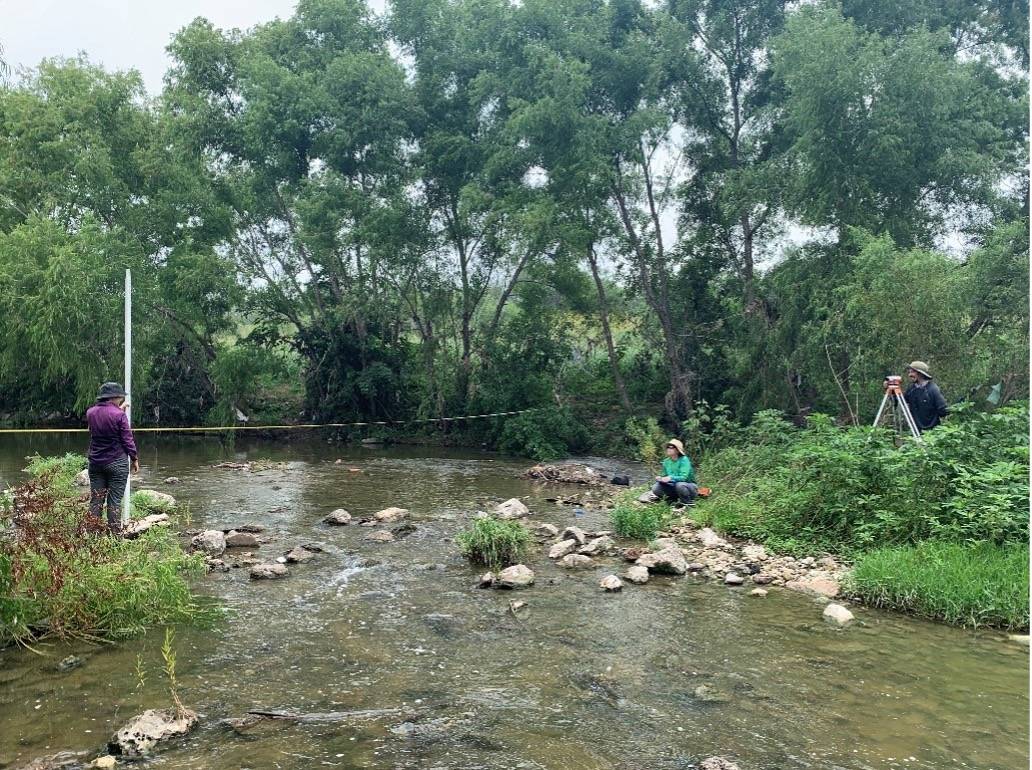Mussel Habitat Suitability Study
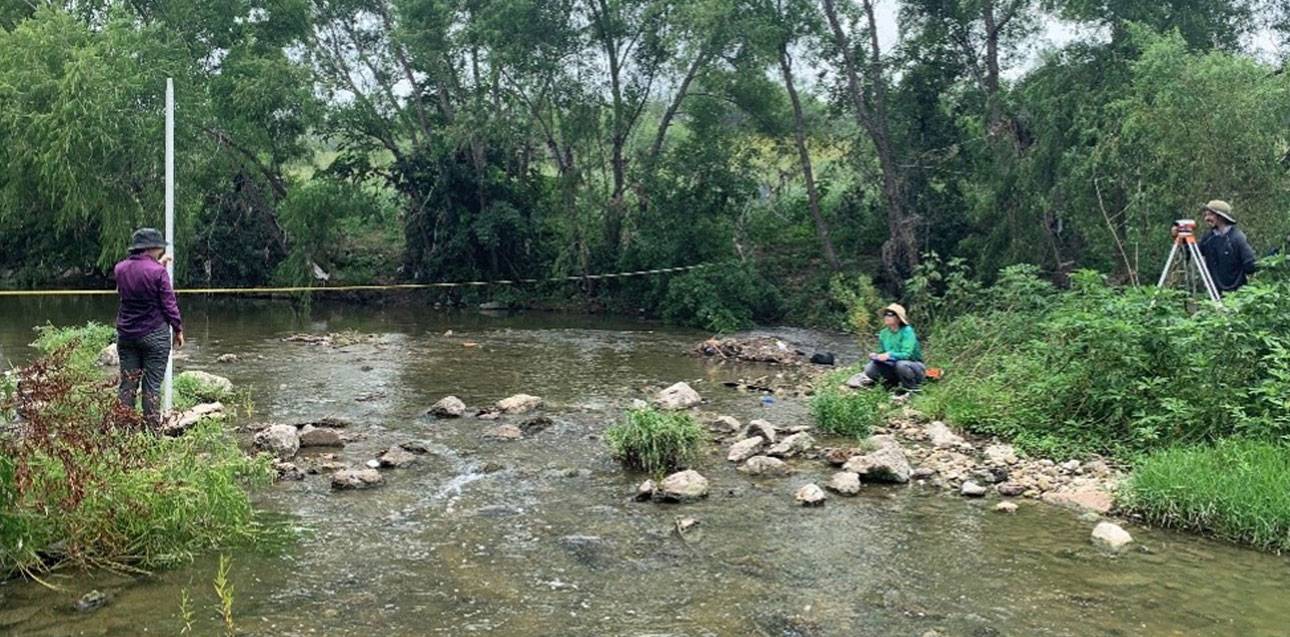
Project Summary
Often called the “liver of the river,” freshwater mussels play a vital role in riverine ecosystems. As prolific filter feeders, mussels filter algae and other detritus from the water, which is instrumental in keeping rivers clean and healthy. Unfortunately, human activities increase pollution and alter river hydrology, leading to the decline of mussel populations in Texas.
The San Antionio River Authority (SARA) is underway on a project to propagate and reintroduce native mussels to the Mission Reach of the San Antionio River, where they have been locally extirpated. In collaboration with Megan DiNicola, a graduate student at Utah State University, and SARA, the Meadows Center’s Ecological Research Group has helped to implement field studies to assess good locations on the river to reintroduce native mussels.
We utilized innovative techniques such as scanning and 3-D printing artificial mussels from discarded adult shells. These "particles" were tracked in the stream to study their displacement patterns. In 2022 and 2023, we recorded detailed bathymetry changes and mussel particle movement in response to hydrological events in the Mission Reach of the San Antonio River. Additionally, we are planning an ex-situ study using flumes to validate our field methods and determine velocity-dependent mussel movement trends.
As the next step, Megan DiNicola (Utah State University graduate student) and engineers with the U.S. Army Corps of Engineers are working together to develop hydrodynamic models that will guide the placement of mussels ready for release from the Inks Dam National Fish Hatchery, a U.S. Fish and Wildlife Service facility collaborating with SARA to propagate native juvenile mussels.
For more information on SARA’s mussel propagation efforts, visit https://www.sariverauthority.org/blog-news/river-authority-mussel-reintroduction-project-enters-final-stages/.
Project Lead
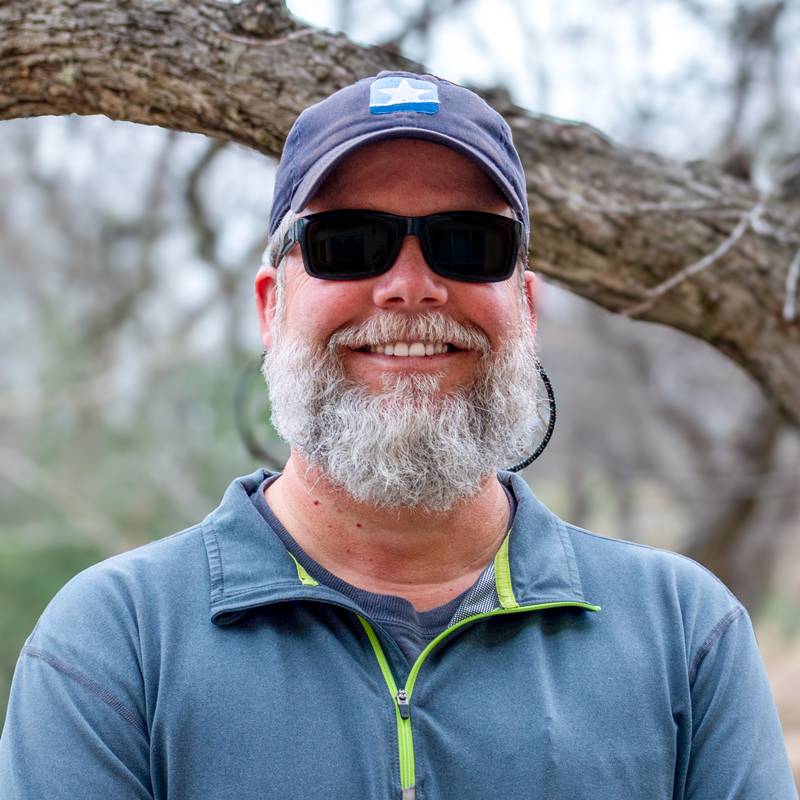
Tom Heard, M.S.
Wildlife & Fisheries Biologist, Habitat Field Crew
(512) 245-3553
th39@txstate.edu
Collaborators and Funders
This project is a good example of how the Ecological Research Group engages in cross-agency collaboration. Funding comes directly from the U.S. Army Corps of Engineers. Our partners include TRIAGE Texas State University, Utah State University, the San Antonio River Authority, and the U.S. Army Corps of Engineers.
